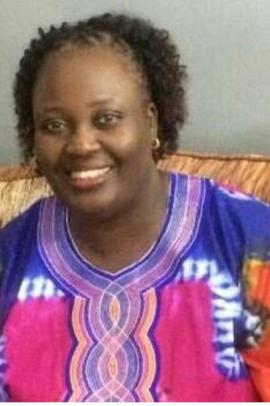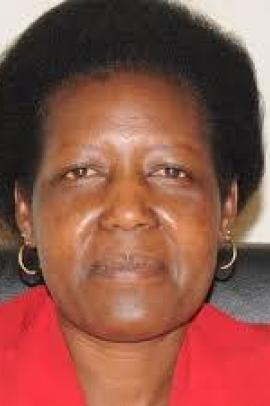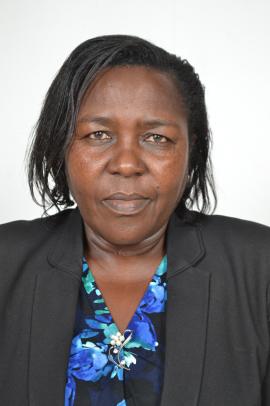BIOGRAPHY
I am married and a proud mother of three children namely Marlyn, Venessah, and Emmanuel Mbalanya. I Was brought up in a Christian home background with my late parents: Herman Amadi and Dinah Imbuhilla, They taught us values of Love, respect and hard work. I grew up in a family of 4 boys and 4 girls. We enjoyed each other company like during birthdays, going upcountry together using the night train, and music that our elder uncles played.
My parents appreciated education and encouraged us to excel. I went to Racecourse Primary then joined Ngara Girls where I did my A-Levels. I remember in 4th form, I was made to repeat to get better grades that enabled me to advance to A level. I did not manage to go to the university and joined the Banking industry where I managed to further my studies.
The bank has an education policy that encourages workers to upskill and improve in decision making. I managed to do my banking courses then started my undergraduate studies at Catholic University. Later, joined the University of Nairobi and did Project Management. I really loved to enroll in this course because there are a lot of projects going on in the business sector and am empowered with knowledge.
I wish to acknowledge the University of Nairobi, School of Open Distance Learning for providing the opportunity to study in their institution of excellence. I appreciate my lecturers for investing their time and commitment in my online studies. I also appreciate the support of my supervisor, Professor Gakuu for his valuable role in supervising, directing and correcting my work.
I thank God for this opportunity and as it is written – In his time, he makes all things beautiful. So, this is my time, I am very happy to be part of the class that is graduating virtually in the institution. All the glory goes to GOD.
amwayiaudrey@gmail.com

Thesis / Project Title:
INFLUENCE OF KCB 2JIAJIRI PROGRAMME ON WOMEN EMPOWERMENT: CASE OF BEAUTY AND PERSONAL CARE BUSINESS SECTOR IN NAIROBI, KENYA.
Thesis / Project Abstract
Socioeconomic problems facing women in developing countries has attracted the attention of corporates to develop programs for women empowerment. Over the last 20 years there has been significant changes in the business sector’s relationship with the state and local communities as business ethicists assert that normative obligation firms imposed by the social contract require constructive responses to the needs of owner and non-owner groups. The proposed study assessed the influence of KCB 2Jiajiri program strategies on women empowerment in the beauty and personal care sector in Nairobi, Kenya. The theoretical framework focused on the theories of training, theories of funding, and theories of partnerships to explain the influence of training, funding, and partnerships on women empowerment in the beauty and personal care sector in Nairobi, Kenya. Based on the positivism research philosophy selected for this study, the researcher adopted a deductive research strategy. The study population also included the KCB 2Jiajiri program chairperson, as well as the senior management from three program partners supporting KCB 2Jiajiri program. Questionnaires were used to collect data. The data was analyzed using quantitative techniques and tabulated. The study considered confidentiality of the respondents besides explaining to them the purpose of the proposed study. The results show that training, funding, and partnership contributed to empowerment of women in the beauty and personal care business who received training under KCB 2Jiajiri program. Analysis via Pearson’s chi-square shows a p=0.00, which is lower than the alpha value, demonstrate a relationship between the independent and dependent variables. The author concludes that KCB’s 2Jiajiri program strategies empower women in the beauty and personal care business in Nairobi, Kenya.





